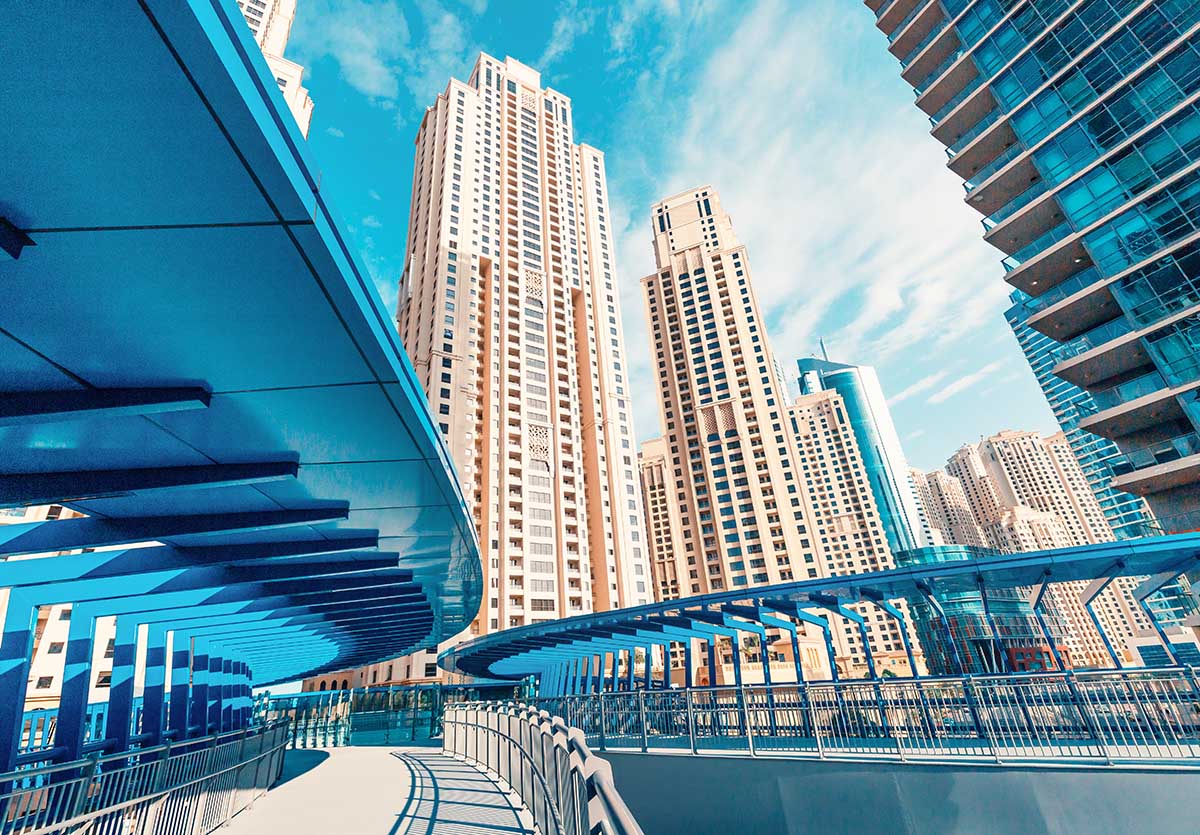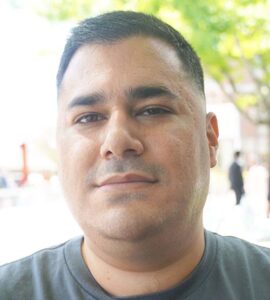Can You Own Property in Dubai Forever?
According to the Government of Dubai, foreigners, including Americans, can own property in Dubai forever if it’s freehold in a designated area. Your title does not expire. While you own the property, you can sell, rent, gift, or pass it to heirs. All you have to do is follow community rules, pay service charges, and plan inheritance to keep ownership smooth.
Looking to buy real estate in Dubai with confidence? Our Dubai Property Legal and Purchase Support service connects you with expert legal partners who guide you through contracts, ownership deeds, and property laws. From reviewing the purchase price to navigating regulations, we handle the whole buying process to ensure a secure, stress-free closing.
That said, if you’re wondering whether you can own property in Dubai forever, there are two types of property ownership in Dubai that you should understand: freehold and leasehold properties.
What is the Difference Between Freehold and Leasehold Ownership?
The key to understanding property ownership in Dubai is knowing the difference between freehold and leasehold properties.
- Freehold property. When foreign investors like you buy in a designated freehold zone, you own the property outright, giving you full property ownership. There’s no time limit on your ownership of the property. You can sell it, rent it, gift it, or pass it down to your kids by creating a will. That’s what people mean when they say you can own property “forever” or in perpetuity in Dubai.
- Leasehold property. This is essentially a very long-term rental. You get rights to use the property for 30, 50, or even 99 years, but eventually, the right expires. Once the right expires, it goes back to its rightful owner. Leasehold is common in some parts of the UAE, but if you want permanent ownership, you should stick to freehold ownership properties.
So to answer your question, yes, foreigners like Americans can own freehold property forever in Dubai, but only in the designated freehold zones. These include hotspots like Dubai Marina, Downtown Dubai, Palm Jumeirah, Jumeirah Village Circle, and many more places.
Does Owning Dubai Property “Forever” Really Mean Forever?
Technically, yes. When you or any American buys a freehold property in Dubai, you’re the registered owner on the title deed, and your title deed doesn’t come with an expiration date. But let me explain the fine print.
What doesn’t expire:
- Your freehold title deed.
- Your right to sell, gift, rent, or collect rental income from your property.
- Your ability to pass it on to heirs.
What does continue:
- Service charges for shared areas (think: elevators, lobbies, gyms, pools).
- Maintenance obligations if you own a villa or townhouse.
- Community rules you agree to as part of a building or neighborhood association.
So while your foreign ownership lasts forever, the practical side of owning property means you’ll always pay service charges to maintain the unit and common areas. In other words, you can hold it forever, but you’ll also keep paying any associated fees for it forever, too.
That said, when you buy freehold property in Dubai’s booming real estate sector, especially in high-demand areas like Downtown Dubai, you’re making a long-term investment that can grow in property value over time. Dubai’s local laws are designed to protect ownership rights, but working with a trusted US-based real estate agent ensures you understand the fine details of your property investment. Whether you’re planning to live in the unit or treat it as a rental, Dubai’s real estate market gives you stability and the potential for lasting returns.
What Happens When a Building Gets Old?
This is one of the questions people don’t think about at first. “What happens if my tower is 60 years old and crumbling?”
Dubai actually has regulations for this. If a building becomes unsafe or needs to be redeveloped, the owners’ association and the authorities step in. Usually, insurance policies, redevelopment plans, or compensation schemes cover owners. You don’t just lose your title overnight.
Owning “forever” in Dubai doesn’t mean the physical building lasts forever. It means your legal right to that property and to whatever replaces it lasts forever.
Can the Government Take My Property?
This is rare, but like in most countries, the government can only acquire property for public benefit. For example, building a road or a metro line. If that happens, you’ll receive compensation. It’s the same idea as eminent domain in the U.S. or compulsory purchase in the U.K. Other than this exception, the government cannot take your property away from you.
So yes, “forever” has exceptions, but they’re uncommon, and if your property is taken away for public benefit, you will be 100% compensated for your property.
What About Inheritance? Will My Family Keep My Dubai Property?
This is where things get interesting. For years, foreign owners worried that Dubai would apply Sharia inheritance law automatically, which can split property differently than what non-Muslims or Americans might expect.
Here’s the good news: Dubai now allows non-Muslims to:
- Register a will in the Dubai Courts or the DIFC (Dubai International Financial Centre).
- Apply the inheritance laws of their home country.
- Choose who the property will go to in the event of their death.
This means you can pass your property on to your spouse, children, or whoever you choose. If you do nothing and die without a will, the courts will still handle succession, but it may not follow your wishes exactly. So if you want your Dubai property to stay in the family “forever,” the smart move is to write a will and give the property to the person you wish to have it after your death.
Does Owning Property Get Me UAE Residency?
Here’s another common question we get at DRUS: “If I own property, do I automatically get UAE residency?”
Buying property or real estate in Dubai does not automatically provide you with residency, but Dubai does have investor visa programs for eligible property owners. For example:
- If you buy property worth AED 2 million or more, you may qualify for a 10-year Golden Visa, but you’ll have to apply for the Golden Visa after buying your Dubai property.
- If you buy below that, there are other visa categories, but they usually come with additional conditions. One such visa is the Taskeen Visa for Dubai property purchases over AED 750,000.
Owning property in Dubai’s real estate market can absolutely support your residency plans, but you should never assume the deed comes with a visa. After purchasing a property, it is up to you or your agent to apply for and obtain a UAE long-term residency visa. At DRUS, we can assist you in completing forms and applying for a UAE long-term residency visa.
Do You Have to Pay Property Taxes in Dubai?
This is one of the biggest reasons people love buying in Dubai. There are NO annual property taxes like the ones that we have in the US. Once you own a piece of land or a house in Dubai, you do not need to pay any taxes on the property. So, no property taxes on any land you own in the UAE.
Here’s how property ownership in Dubai actually works:
- When you buy, you pay a one-time 4% transfer fee to the Dubai Land Department.
- If you finance the property, you pay a 0.25% mortgage registration fee.
- After that, you don’t pay yearly property taxes like you would in the U.S. or Europe.
But don’t confuse that with free ownership. You’ll still pay service charges (like HOA fees) and a housing fee tied to utilities. Think of it as upkeep, not taxes.
Can I Gift My Property to Family?
Yes, according to the Government of Dubai, you can gift your property to a family member or anyone else. Dubai has a straightforward process for gifting property. You’ll go through the Land Department, pay the applicable fees, and the title will transfer to your spouse, child, or whoever you choose. Many people use this for estate planning, alongside a registered will.
Can I Own Property Through a Company?
Absolutely. Many investors buy into the UAE’s real estate market through companies, often for estate planning, tax efficiency, or liability reasons. But not every company is eligible. Dubai Land Department allows specific free zone and onshore companies to register property, so you need to check with the DLD or your lawyer before setting this up.
The good news? If the company owns it, the “forever” rule still applies. The company doesn’t have an expiration date, so the property title doesn’t either.
Common Questions People Ask DRUS.
Whenever I talk to friends or clients about Dubai property, I hear the same questions over and over. Let’s answer them quickly:
1. Can foreigners own villas or land forever in Dubai?
Yes, they can as long as they buy and own them in a designated freehold area.
2. Is there a 99-year cap on property ownership in Dubai?
No. The 99 year rule only applies to leaseholds, not freeholds. Freehold has no expiry date, allowing you to own a property or home in Dubai forever.
3. What if I don’t live in Dubai? Can I still own property there?
Yes. You don’t need to be a resident of Dubai or the UAE to own freehold property or make a real estate investment in Dubai.
4. Does the government ever cancel deeds?
Not without cause. If a building is unsafe or expropriated for public benefit, you’ll be compensated for your property fully.
5. What happens if I die without a will?
The Dubai courts handle it, but it may not follow your wishes. Registering a will is the safest route to ensure that your property is distributed according to your wishes at the time of your death.
6. Are there ongoing taxes?
There are no annual property taxes, but you may have to pay service charges and utilities associated with your property.
7. Can I pass my Dubai property to my kids?
Yes. With a will, you can pass on your property to your kids or anyone else. Without a will, the estate may be subject to local court rules.
8. Does property ownership get you UAE citizenship?
No. Owning property will not grant you UAE citizenship, regardless of the duration of your property ownership.
9. Is property ownership safe in Dubai?
Yes, property ownership in Dubai is super safe. Titles are issued by the Dubai Land Department, and the registry is digital and secure.
10. What freehold ownership rights do buyers enjoy?
Purchasers enjoy full ownership rights with freehold property, including the ability to sell, rent, gift, or pass it to heirs, with no time limit on their ownership.
11. Why do foreigners, like Americans, choose to buy Dubai property?
Dubai attracts buyers from foreign nations because of its tax-free environment, ownership deeds that ensure security, and strategic location connecting East and West. Investors benefit from tax advantages, tax-free income on rentals, and market trends that show steady demand. Combined with high rental yields and rising property values, Dubai stands out as a top choice for global property investment.
12. What financial benefits come with buying freehold property in Dubai?
When you buy real estate properties in Dubai, you gain ownership deeds with no expiration and potential eligibility for a residency visa. Beyond the purchase price, the appeal lies in tax advantages like tax-free income, a tax-free environment for investors, and high rental yields. Market trends continue to show growth, making Dubai a stable long-term investment in a strategic location with strong global appeal.
The Real Meaning of Owning Property “Forever” in Dubai.
Here’s how I explain it to friends, family, and DRUS clients:
Foreign property ownership in Dubai is like owning property in London or New York. The title doesn’t expire, and you can hold it indefinitely. But “forever” comes with responsibility, as you’ll always have service charges, you’ll want to keep your will updated, and you need to respect community rules.
It’s not a “forever without conditions.” It’s a “forever within the legal system.”
Quick Dubai Property Checklist Before You Buy
If you’re serious about making your Dubai property last forever, here’s what I’d tell you to do:
- Buy only in freehold zones. Purchasing property in freehold zones guarantees perpetual (forever) ownership.
- Plan your budget. Plan for service charges and maintenance.
- Write a will. Create a will so your heirs inherit cleanly.
- Understand the fees. There is a 4% transfer fee and a 0.25% mortgage registration fee if applicable.
- Residency options. Check residency options if you want to live in Dubai long-term.
- Verify title deeds. Verify title deeds online through the Dubai Land Department for peace of mind.
Final Thoughts on Owning Property in Dubai Forever.
So, can you own property in Dubai forever? Yes, you can, as long as it’s freehold. You won’t face a 99-year deadline, you won’t get hit with yearly property taxes, and you can pass it on to your heirs. The only strings attached are the ones you’d expect anywhere: maintenance fees, community obligations, and smart estate planning.
If you’re coming at this as an investor or even as someone looking for a long-term home, Dubai offers one of the clearest “forever” property systems in the region. Just make sure you buy in the correct zone, protect yourself with a will, and stay on top of your responsibilities as an owner.
That’s the Dubai version of “forever,” and it’s a pretty good deal if you ask me.
Reach Out to DRUS.
If you’re ready to explore Dubai property ownership and want expert guidance every step of the way, our team at Dubai Real Estate US is here to help. From finding the right freehold property to handling contracts, inheritance planning, and residency options, we make the process seamless for American investors. Learn more and get started today by visiting Dubai Real Estate US.
Check out our guide on how to buy Dubai real estate as an American. This guide covers everything you need to know about purchasing Dubai real estate from the US.


